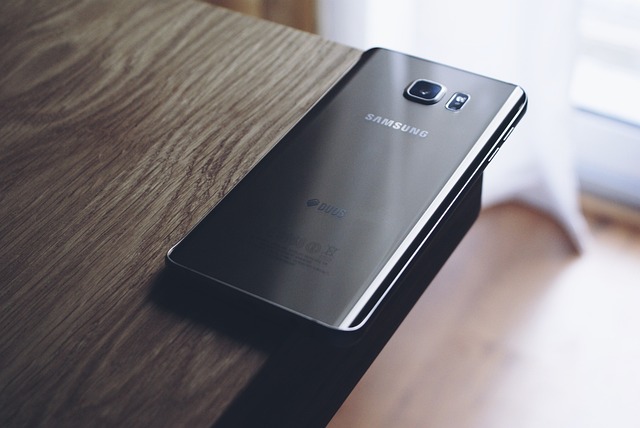Political campaigns in North Carolina must adhere to strict "Do Not Call" regulations to protect residents' privacy and avoid legal issues. These laws require explicit consent for automated calls, with penalties for violating "Do Not Call" lists. Working with specialized lawyers ensures compliance, safeguarding campaigns from legal repercussions and maintaining voter trust. Regulations also prohibit deceptive tactics, such as pretending to be official government or charity services, and campaigns must respect individual privacy preferences. Compliance involves obtaining written consent, providing opt-out options, and regularly updating call lists. Unauthorized robocalls can lead to complaints with the State Election Board and potential legal action from a Do Not Call lawyer NC or attorney for Do Not Call North Carolina.
“In North Carolina, political campaigns navigate a delicate balance between reaching voters and respecting their privacy. This article delves into the complex world of robocalls and NC’s stringent `Do Not Call’ laws specifically for political campaigns. We explore permitted content, timing, exclusions, and enforcement to ensure compliance. Whether you’re a political organization or a concerned voter, understanding these guidelines is crucial. For legal advice tailored to North Carolina’s Do Not Call Laws, consult a reputable Do not call Lawyer NC, Do not call Attorney NC, or Do not call Law Firm NC.”
Understanding NC's Do Not Call Laws for Political Campaigns
In North Carolina, political campaigns must adhere to strict regulations regarding robocalls and telemarketing practices, particularly when it comes to respecting consumers’ “Do Not Call” requests. The state’s Do Not Call laws are designed to safeguard residents from unwanted solicitation, both during elections and year-round. According to these laws, political organizations and candidates must obtain explicit consent before placing automated calls to North Carolina residents who have registered their phone numbers on the state’s Do Not Call list.
A “Do Not Call” lawyer or attorney in NC can provide valuable guidance to campaigns on how to navigate these regulations effectively. They ensure that calls are made only to consenting individuals, properly identify the source of the call, and include an easy way for recipients to opt out of future calls. By understanding and complying with these rules, political campaigns can avoid legal issues and maintain the trust of North Carolina’s voters.
Permitted Content and Messaging in Robocalls
In North Carolina, political campaigns are subject to specific regulations regarding robocalls, ensuring transparency and consumer protection. When it comes to content and messaging, permitted calls must adhere to strict guidelines. These rules prohibit any representation or implication that a candidate or organization is affiliated with official government bodies or emergency services. The messages cannot use deceptive language or strategies, such as pretending to be from a local election office or a well-known charity.
Additionally, robocalls in NC are restricted from using recorded messages that identify the caller as an individual, even if the number is disconnected or unavailable. This restriction aims to prevent voters from being misled and ensures that political organizations maintain ethical practices. Campaigns must also respect do-not-call lists and refrain from contacting numbers on these lists, which includes those registered with the “Do Not Call” registry in North Carolina, as well as any registered “Do Not Call Lawyer NC” or similar requests for legal services.
When and How to Contact Voters Legally
Political campaigns in North Carolina must adhere to strict regulations when contacting voters by phone, particularly regarding robocalls. According to state laws, campaigners are prohibited from calling residents at inconvenient times or using automated systems to make unsolicited calls to individuals who have not given explicit consent. This means that while campaigns can reach out to potential supporters, they should respect the “Do Not Call” lists registered with the North Carolina Attorney General’s office.
To contact voters legally, political organizations must ensure they have obtained proper permission and follow the guidelines set by the state. This includes obtaining written consent from individuals who wish to receive calls, providing a clear opt-out option for those who do not want to be contacted again, and ensuring all call lists are regularly updated and maintained. By adhering to these practices, campaigns can effectively engage with voters while also respecting the privacy and preferences of North Carolina residents, avoiding any legal complications that might arise from unauthorized robocalls.
Exclusions and Special Considerations for Political Organizations
Political organizations in North Carolina are subject to specific regulations when it comes to robocalls and telemarketing practices. While general restrictions on unsolicited calls apply, there are certain exclusions and special considerations for political entities. These organizations are generally allowed to make automated calls for political purposes, including campaign advertising and get-out-the-vote initiatives. However, they must adhere to strict do-not-call lists and respect individual preferences.
In North Carolina, political campaigns can utilize robocalls as a powerful tool to engage voters. But, there are rules in place to protect residents from unwanted calls, especially when it comes to legal representation. Political organizations cannot call individuals who have registered on the state’s “Do Not Call” list or those who have specifically requested not to be contacted by lawyers or attorneys via automated means. This ensures that residents can exercise their right to privacy and avoid unsolicited legal advertising.
Enforcement, Penalties, and Resources for Complaints
In North Carolina, enforcement of political campaign regulations, including restrictions on robocalls, is overseen by the State’s Election Board. Citizens who believe they’ve received unauthorized or misleading calls from political campaigns can file a complaint with the board. The penalties for violating these rules can include fines and other legal repercussions. If you’re troubled by a suspected violation, contacting a do not call lawyer NC or consulting with an attorney for Do Not Call North Carolina could be beneficial to understand your rights and available recourse.
Resources are readily available for North Carolinians who wish to file complaints about political robocalls. The State Election Board provides clear guidelines on what constitutes a violation, as well as a mechanism for reporting them. While these measures help maintain the integrity of the electoral process, it’s crucial that individuals affected by unwanted calls know their options and don’t hesitate to exercise their rights. Remember, reaching out to a lawyer for Do Not Call North Carolina can offer valuable legal counsel in navigating these matters.






